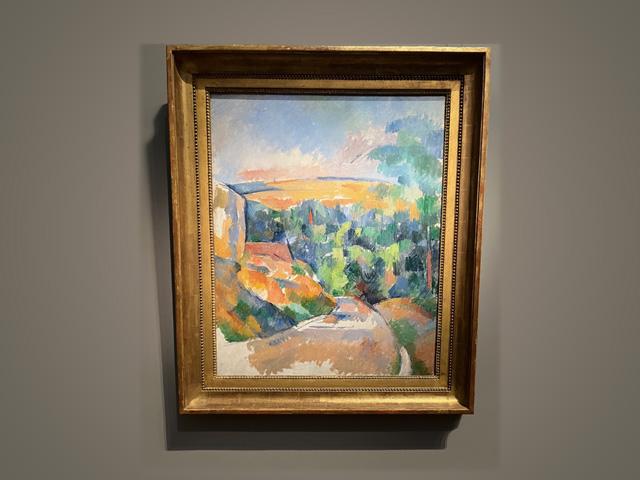An Urban's Rural View
The Other Side(s) of the Nation's Capital
If you don't live in Washington, D.C., or its suburbs, you probably think of the nation's capital as the Capital of Perpetual Dysfunction. Fair enough. No question there's political dysfunction aplenty in the District of Columbia. Lately there's also been an increase in another sort of dysfunction -- violent crime.
But dysfunction is only one side of Washington's story. If you've visited the city as a tourist, you've experienced another -- the district's wondrous museums and monuments, most of them wondrously free. There's still another side: Washington is a very livable place.
I know there are farmers who can't imagine any city being livable. Participating in a crop tour a few years ago, I rode with a farmer who felt claustrophobic in the tiniest of hamlets. Stopping at a traffic light made him seethe with impatience.
Yet as cities go, Washington ranks high on livability. It has plenty of trees to offset the concrete. It has beautiful architecture. And it's walkable.
As an adult I've lived in 12 states and three foreign countries but in none of them as long as my combined 16 years in Washington. Having just moved out of Washington, D.C., to Vancouver, Washington, I've been thinking a lot about the capital recently. I will get back to the dysfunction in a minute, after a few words on Washington's other sides.
People are sometimes surprised when I tell them it's easy for Washingtonians to keep the sides separate. But it's true. The dysfunction doesn't automatically spill over into daily life. Many residents spend no more time talking politics than people in the rest of the country. Despite the rise in crime, many Washingtonians live whole lifetimes unscathed.
P[L1] D[0x0] M[300x250] OOP[F] ADUNIT[] T[]
I first experienced Washington as a 12-year-old tourist on a family vacation in 1959. I have two strong memories from that trip. One was meeting our Congressman, Michigan Republican (and later President) Gerald R. Ford.
My father wasn't particularly political and he certainly wasn't a campaign contributor. Somehow, though, he and the Congressman hit it off. Wanting to continue the conversation with his constituent, Ford sent aides to our car with nickels to put in the parking meter. Ah, for the days when you could park in Washington for nickels.
The other memory was of visiting the National Gallery of Art. My father was a commercial artist and painted as a hobby and I'd been to the art museum in our hometown of Grand Rapids many times. The National Gallery wowed me. I fell in love with the French Impressionists and decided Paul Cezanne was my favorite painter.
When mom and dad let my younger sister and me choose how to spend our last day in town, we both voted to return to the gallery. I've been back countless times since. Earlier this month I spent my last day in the District there. Cezanne is still my favorite.
Washington is the one place I've lived where I've known crime. Near the end of my first five-year residence in the 1970s, a young man bashed a crowbar through my living-room window. Thankfully, he fled when he realized the house was occupied. My lady friend (now wife) was mugged once and on another occasion talked a 10-year-old with a gun out of taking her purse.
Since returning to the capital in 2012, however, we've never felt unsafe. Walking is one of the great pleasures of living in Washington and from our condo building on a leafy street in Foggy Bottom we had grocery stores, restaurants, doctors, banks, pharmacies, the subway, the Potomac River and the Kennedy Center within a 15-minute stroll.
What changed during the 30 years between our two residencies in the district is the political dysfunction. Washington was less divisive in the '70s. Liberals and conservatives were more likely to see each other as decent people who just had different views. They socialized with each other.
Back then, both sides accepted a key unwritten rule of democracy -- you're going to lose some elections. Defeat isn't the end of the world; you can still win the next one, or the one after that. Meanwhile, you may be able to convince the other side to accept some compromises.
These days both sides assume that if the other wins, the country will be irretrievably changed, the American way of life ended. They think avoiding this terrible outcome justifies breaking rules and smashing customary procedures.
This view is dangerously misconceived. It's not the realization of either side's policy preferences that threatens democracy and the American way of life. It's both sides' eroding commitment to normal democratic processes.
I say both sides knowing that each sees the other as the greater sinner in this regard. Whoever's at fault -- lately for the inability of the House to elect a speaker -- democratic processes have clearly broken down. A Washington Post columnist quoted a Republican Congressman suggesting holding a lottery and forcing the loser to be speaker.
Political dysfunction is not why I'm leaving Washington, however. Our daughter and her husband have moved to Vancouver, Washington, and for the first time since either of us were 18, my wife and I have decided we want to live near family.
I'll miss Washington, but I'm looking forward to the change.
Urban Lehner can be reached at urbanize@gmail.com
(c) Copyright 2023 DTN, LLC. All rights reserved.






Comments
To comment, please Log In or Join our Community .